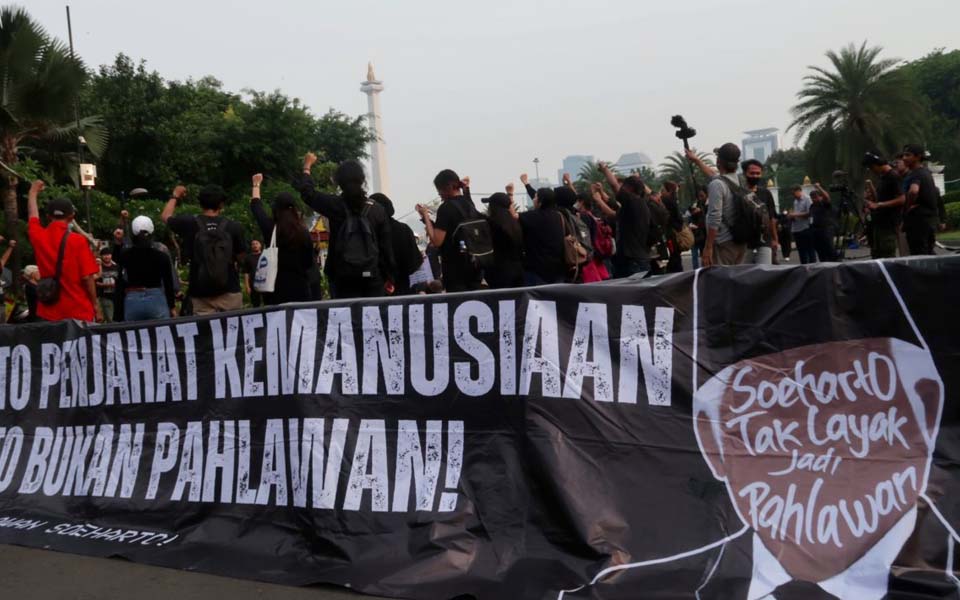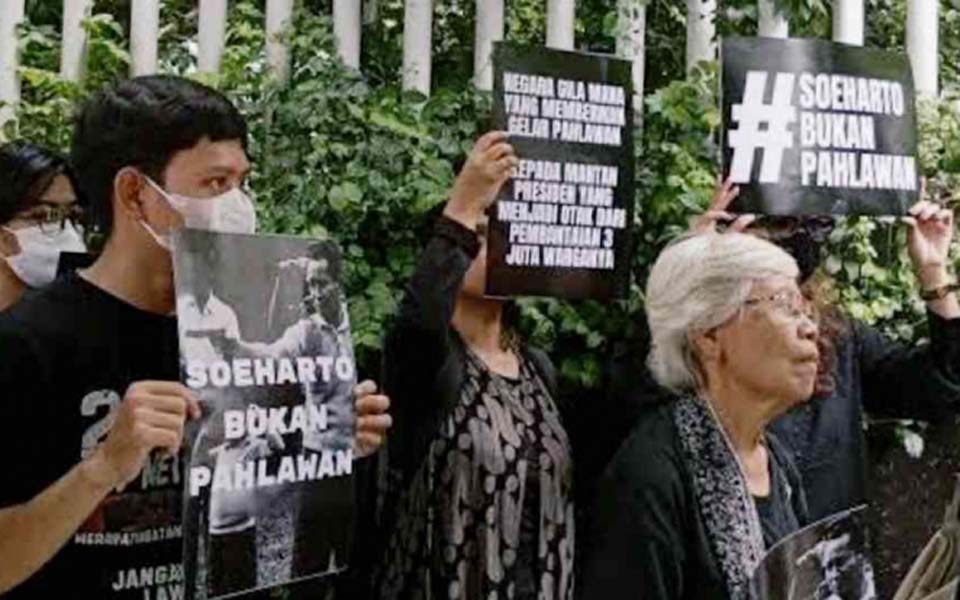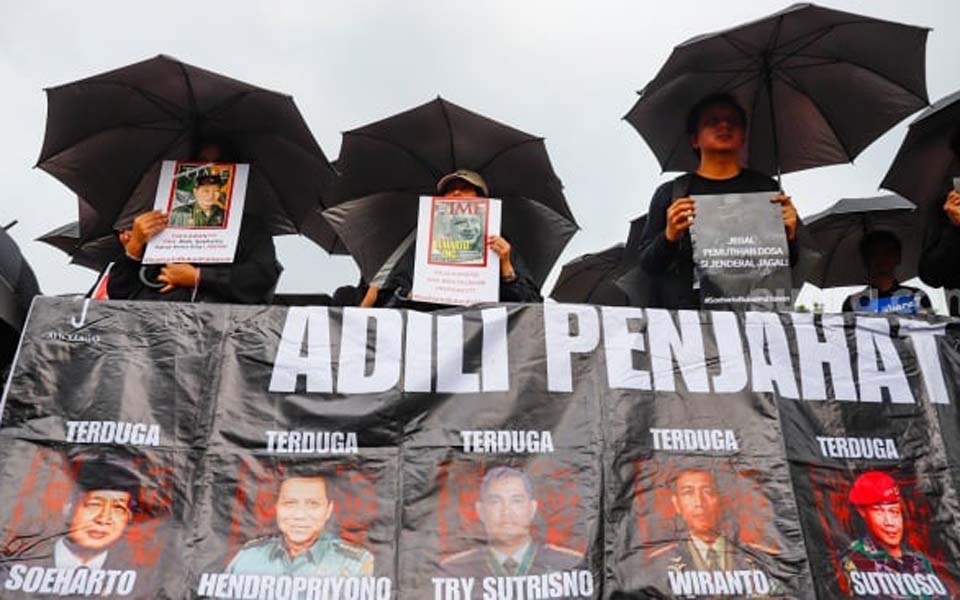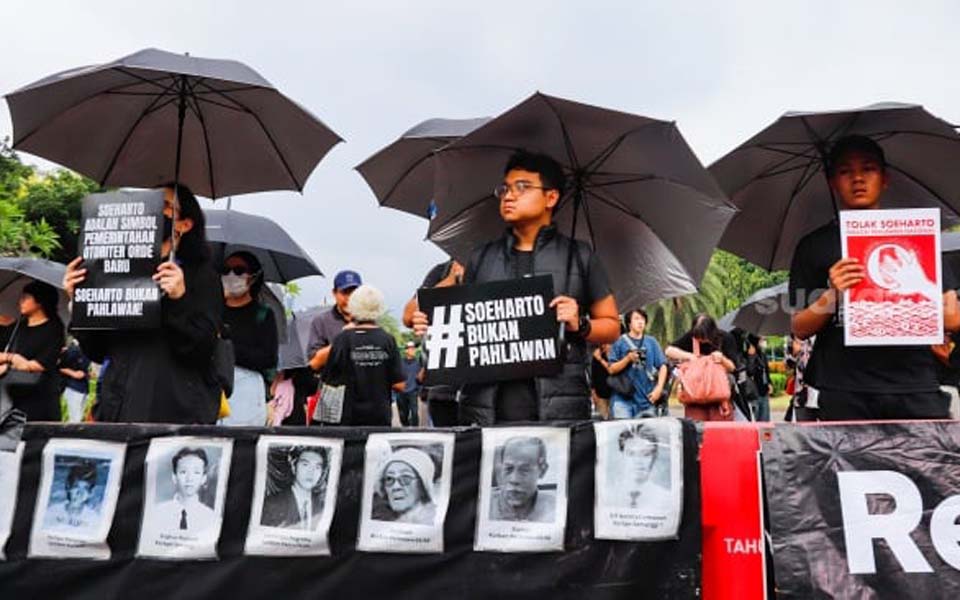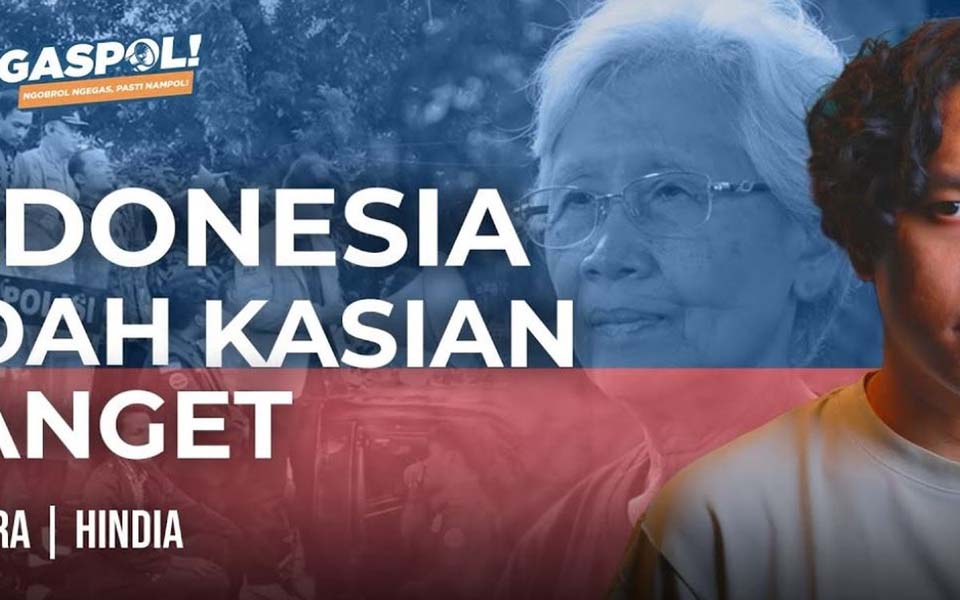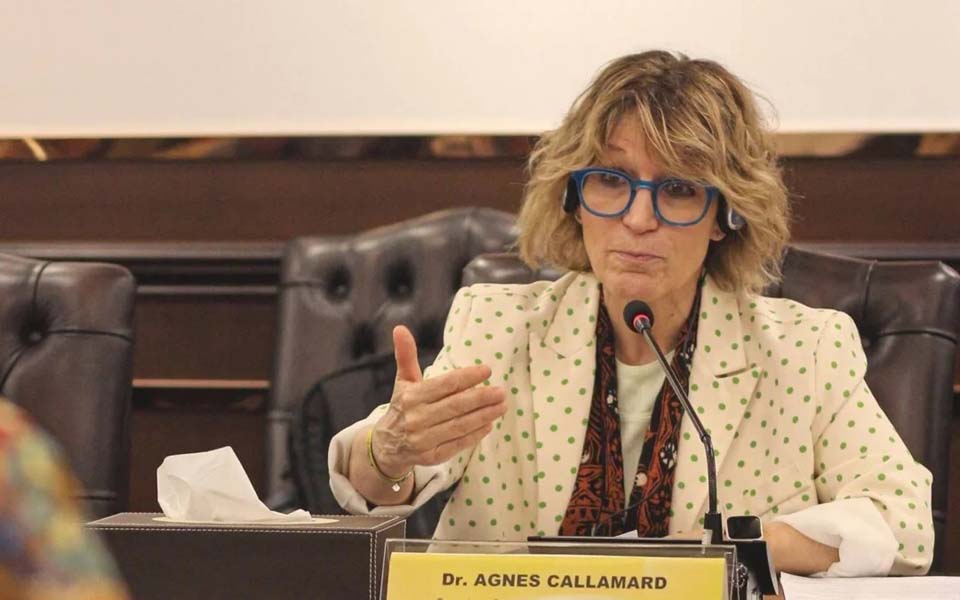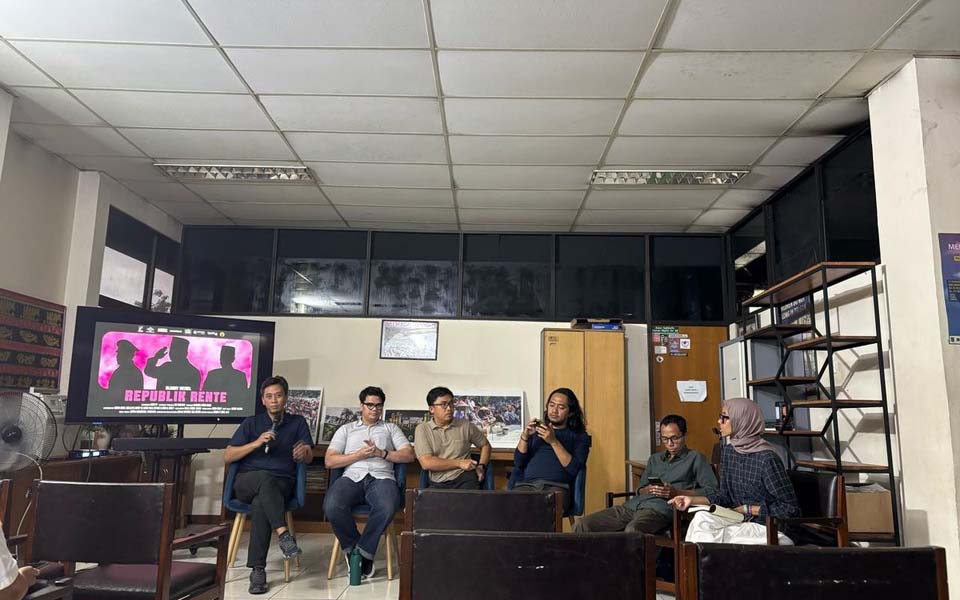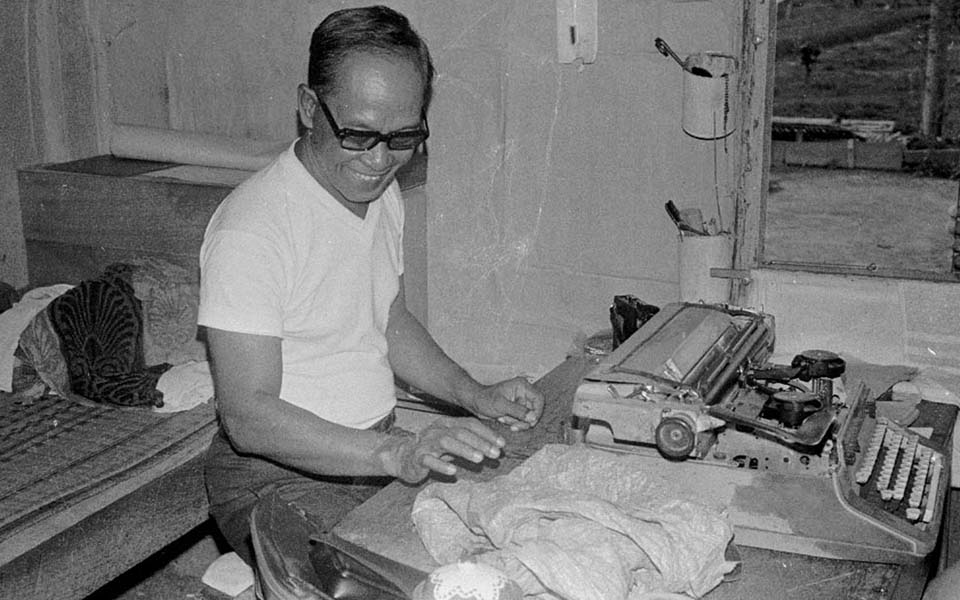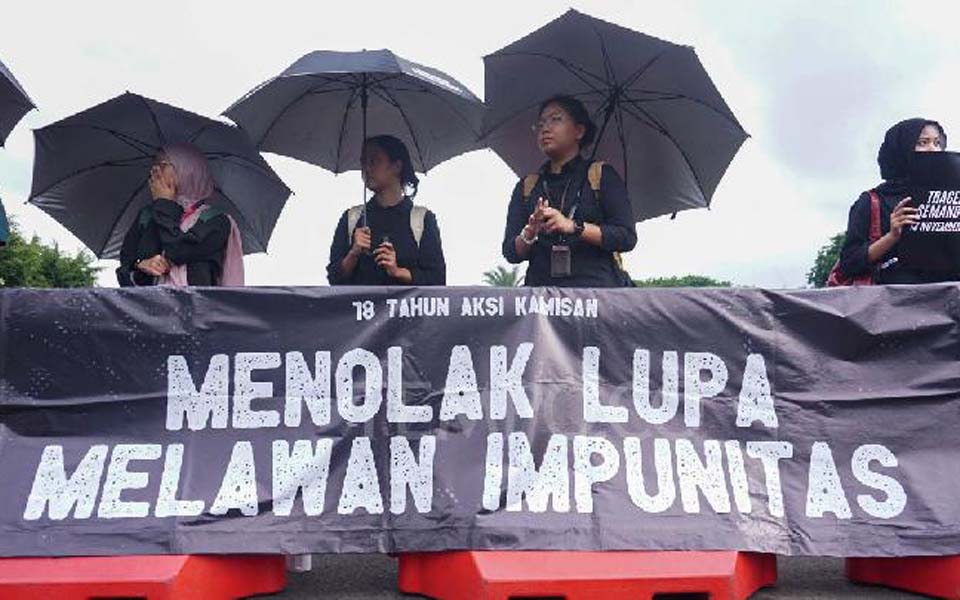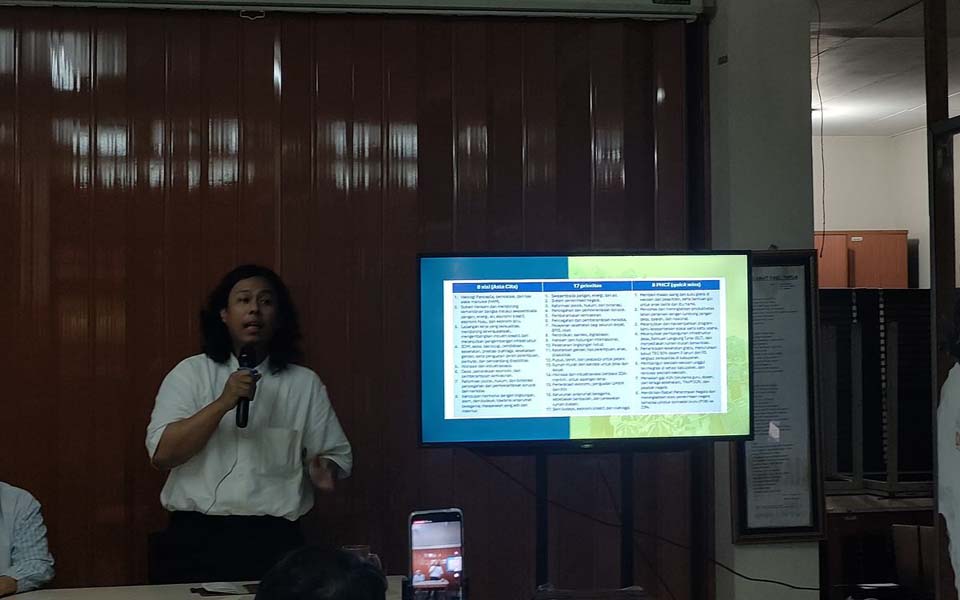Responding a statement by of the Minister of State Secretary (Mensesneg) and concurrently the presidential spokesperson Prasetyo Hadi, who did not question the proposal to name former president Suharto a national hero, Amnesty International Indonesia Executive Director Usman Hamid, said:
"The statement by Mensesneg Prasetyo Hadi is a-historical and is insensitive to the feelings of the victims of gross human rights violations that occurred during the New Order. The proposal for Suharto to be named a national hero injures the mandate of the reformasi – the political reform process that began after Suharto resigned in 1998 – that mandates the resolution of the case of gross human rights violations that occurred over the 32 years that Suharto led Indonesia with an iron fist.
To this day the families of victims of past gross human rights violations still crave justice that has never come. Therefore, the proposal must be rejected if the state still has a commitment to the resolution of past gross human rights violations.
So what is wrong? What's wrong is Suharto's role in the systematic state violence against his people, the censorship of the mass media, gross violations of human rights and the structured practices of corruption, collusion, and nepotism (KKN). Without considering all these problems, proposing Suharto as a national hero is just an attempt to erase his sins and distort history.
Rather than proposing Suharto as a hero, the government should focus on the commitment to investigate the gross violations of human rights that occurred during the Suharto era which has been recognised by the state through several People's Consultative Assembly decrees (TAP MPR) at be beginning of reformasi through to former president Joko "Jokowi" Widodo statement in January 2023 acknowledging that 12 incidents of gross human rights violations had occurred in Indonesia.
Among these were the 1965-1966 mass killings, the mysterious shootings (petrus) in 1982-1985, the Tanjung Priok incident in 1984, the Talangsari massacre in Lampung in 1989, the Rumoh Geudong and Post Sattis cases in Aceh in 1989, the attack on the Indonesian Democratic Party (PDI) office in Jakarta on July 27, 1996, the forced disappearance of pro-democracy activists in 1997-98, the May 1998 riots in Jakarta, the Trisakti and Semanggi I and II shooting of student demonstrators in 1998-99, the humanitarian crimes in Aceh, East Timor and Papua, and other cases of human rights violations that have not been fully resolved by the completed by the state."
Background
The proposal name Suharto as a national hero began doing the rounds again after the Ministry of Social Affairs (Kemennsos) together with the Central Titles Research and Assessment Team (TP2GP) in March 2025 proposed that the 2nd president of Indonesia be awarded the titled of national hero.
Previously, in September 2024, the chairperson of the People's Consultative Assembly (MPR) at that time, Bambang Soesatyo, said Suharto was worthy of consideration for the title of national hero.
Speaking to the media in Jakarta on Monday April 21, Prasetyo Hadi stated that he did not have an issue with the Ministry of Social Affairs proposal to make Suharto a national hero. "We feel, what's the harm in it? We think that respecting a [former] president is natural", he said.
With regard to the opposition to the proposal, Hadi said there was no figure is perfect. He said every human being has their own shortcomings.
[Translated by James Balowski. The original title of the article was "Usulan Soeharto jadi pahlawan nasional mencederai amanat Reformasi".]





